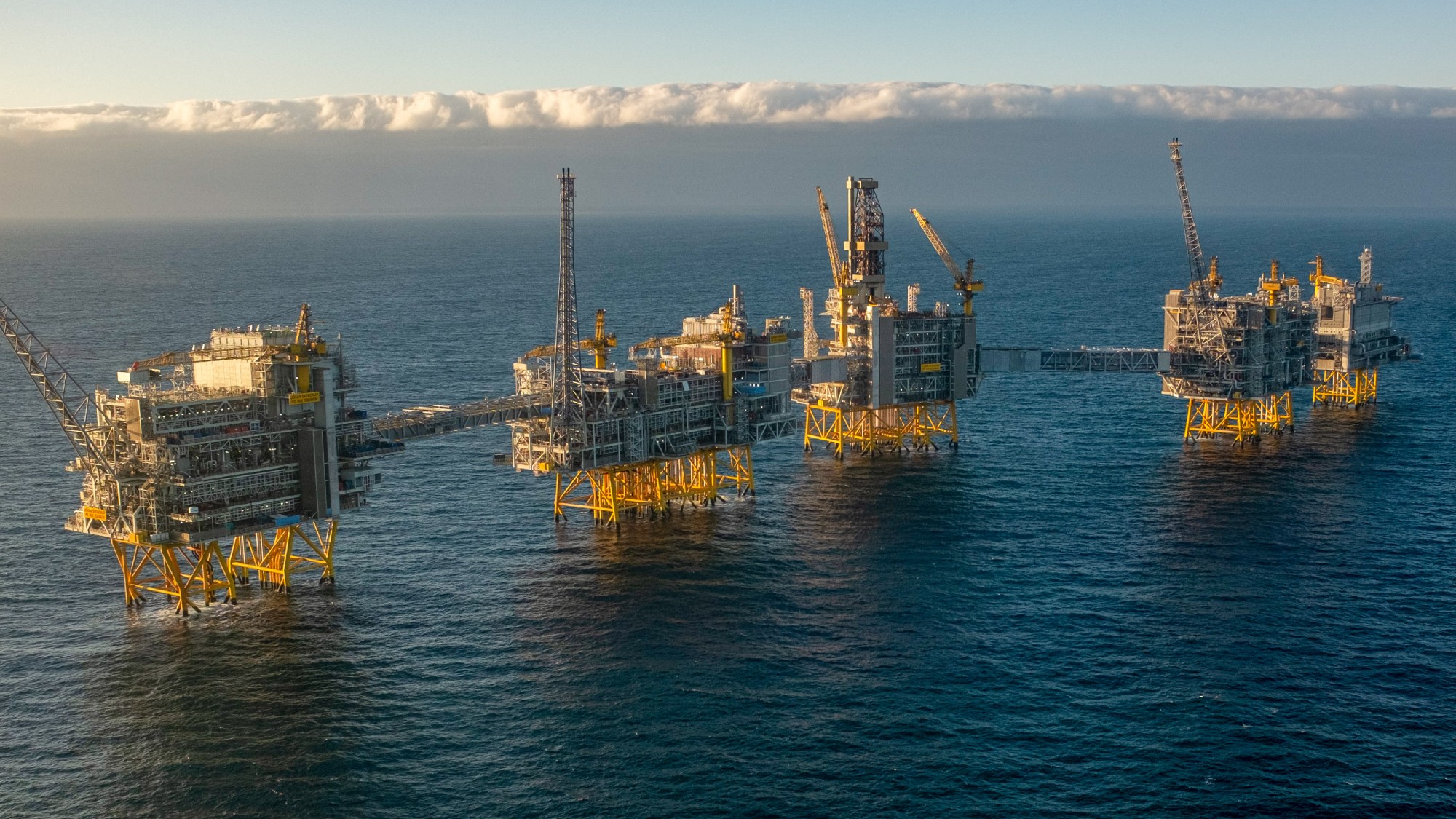Norway's windfall: should it go to Ukraine?
Oil-based wealth fund is intended 'for future generations of Norwegians', but Putin's war poses an existential threat

A free daily email with the biggest news stories of the day – and the best features from TheWeek.com
You are now subscribed
Your newsletter sign-up was successful
"Are we a nation of money-grubbers and war profiteers?" That's what we must look like to our European neighbours, said Asbjørn Svarstad in Nettavisen (Oslo).
Norway is sitting on a huge war windfall that could solve the continent's problems in an instant. Our sovereign wealth fund is now worth €1.7 trillion – and €109 billion of that came straight from our neighbours' pockets. Shortly after Russia invaded Ukraine, Putin cut off Russian gas supplies, sending energy prices skyrocketing and leaving Norway to lap up the profits as the continent's biggest gas supplier. And given that our European allies are pushing their budgets to the limit to help fund Ukraine's fight for survival, we owe it to them to plough that money back into rearmament. Yet until last week, when, under significant pressure, the government more than doubled its contribution to €7 billion – we were the "Uncle Scrooge" of Europe: shamefully, we've donated less to Ukraine as a share of GDP than our Scandinavian neighbours.
Even €7 billion is a "pathetic" amount, said Peter Wolodarski and Christian Jensen, the editors (respectively) of a Swedish and a Danish newspaper, in Aftenposten (Oslo). We used to view the home of the Nobel Peace Prize as a generous and globally orientated country. Now we "don't recognise our Norwegian brothers and sisters".
The Week
Escape your echo chamber. Get the facts behind the news, plus analysis from multiple perspectives.

Sign up for The Week's Free Newsletters
From our morning news briefing to a weekly Good News Newsletter, get the best of The Week delivered directly to your inbox.
From our morning news briefing to a weekly Good News Newsletter, get the best of The Week delivered directly to your inbox.
But Norway's government has stood its ground, said Håvard Halland in the FT (London). Even the finance minister, Jens Stoltenberg, who previously as head of Nato pushed countries to give more, argues against donating more to Ukraine. The wealth fund is governed by strict fiscal rules, he argues: it's specifically designed "for future generations of Norwegians".
And he's not alone in flatly rejecting the idea that Norway has a "special responsibility" to help Ukraine, said Eirik Røsvik in Verdens Gang (Oslo). Norway's former finance minister, Trygve Slagsvold Vedum, argues that Norway has no need to penalise itself for being a perfectly legitimate energy exporter. And besides, he says, "if Norway were suddenly to give three times as much as, let's say, Germany has done, other countries will soon give less". Far better, he believes, that Norway just remains a "stable" ally of Ukraine.
Alas, my country is drunk on "the illusion of wealth", said Knut N. Kjær in Aftenposten. Oil riches aren't the same as power, and we're still a small vulnerable country on the border of Vladimir Putin's imperialism. "More than ever, we need predictability and security in our relationship with Europe", and we won't get that by being "opportunistic egoists". In fact, donating the windfall would be an investment in our future. Ukrainian soldiers are battling an "existential threat to freedom and democracy" – not just to their own country but to ours, too.
A free daily email with the biggest news stories of the day – and the best features from TheWeek.com
-
 The ‘ravenous’ demand for Cornish minerals
The ‘ravenous’ demand for Cornish mineralsUnder the Radar Growing need for critical minerals to power tech has intensified ‘appetite’ for lithium, which could be a ‘huge boon’ for local economy
-
 Why are election experts taking Trump’s midterm threats seriously?
Why are election experts taking Trump’s midterm threats seriously?IN THE SPOTLIGHT As the president muses about polling place deployments and a centralized electoral system aimed at one-party control, lawmakers are taking this administration at its word
-
 ‘Restaurateurs have become millionaires’
‘Restaurateurs have become millionaires’Instant Opinion Opinion, comment and editorials of the day
-
 Witkoff and Kushner tackle Ukraine, Iran in Geneva
Witkoff and Kushner tackle Ukraine, Iran in GenevaSpeed Read Steve Witkoff and Jared Kushner held negotiations aimed at securing a nuclear deal with Iran and an end to Russia’s war in Ukraine
-
 ‘The forces he united still shape the Democratic Party’
‘The forces he united still shape the Democratic Party’Instant Opinion Opinion, comment and editorials of the day
-
 ‘The mark’s significance is psychological, if that’
‘The mark’s significance is psychological, if that’Instant Opinion Opinion, comment and editorials of the day
-
 Democrats push for ICE accountability
Democrats push for ICE accountabilityFeature U.S. citizens shot and violently detained by immigration agents testify at Capitol Hill hearing
-
 Fulton County: A dress rehearsal for election theft?
Fulton County: A dress rehearsal for election theft?Feature Director of National Intelligence Tulsi Gabbard is Trump's de facto ‘voter fraud’ czar
-
 ‘Melania’: A film about nothing
‘Melania’: A film about nothingFeature Not telling all
-
 Greenland: The lasting damage of Trump’s tantrum
Greenland: The lasting damage of Trump’s tantrumFeature His desire for Greenland has seemingly faded away
-
 Minneapolis: The power of a boy’s photo
Minneapolis: The power of a boy’s photoFeature An image of Liam Conejo Ramos being detained lit up social media